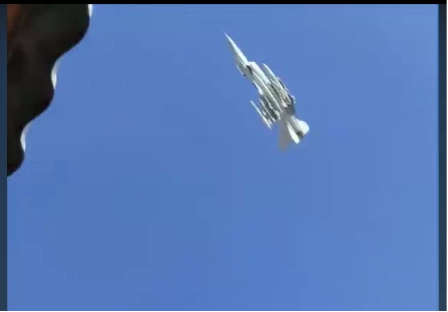Airlines in Siberia are being forced to extend the working life of 50-year-old Soviet planes as sanctions continue to prohibit the upkeep and maintenance of their more modern western-produced aircraft.
Two Siberian carriers – Polar and Angara airlines – have applied to the Kremlin to extend the service life of their An-24 and An-26 planes.
JOIN US ON TELEGRAM
Follow our coverage of the war on the @Kyivpost_official.
The aircraft were designed in the 1950s and were produced in Kyiv, Ukraine from the 1960s with production ending almost a decade ago.
The propeller-driven Antonovs, able to carry as many as 50 passengers, have been Russia’s workhorse aircraft for over 50 years, especially during the harsh winters in Siberia and Russia’s far north, as they do not need a prepared runway for landing and taking off.
“It’s a very reliable aircraft, all the systems work properly, there are no issues at all,” Polar Airlines pilot Konstantin Nazmutdinov told Reuters.
“It is very well suited to the conditions of the far north; it can withstand temperatures up to minus 55 [degrees Celsius] (-67°F). There have even been cases when we flew in up to minus 60.”
In Yakutia, Russia’s largest region which is almost the size of India and the heart of Russia’s diamond industry, the planes have been particularly important, both for transporting workers in and out, as well as moving the product out of the area.

Russia Calls French Nuclear Comments a ‘Threat’
However, many will soon reach or have already reached the end of their operational lives and, while the cost of maintaining them has increased considerably, their users feel they have little option but to keep them flying as sanctions are increasingly affecting the maintenance and availability of parts to keep for Western aircraft airworthy.
The 100 or so Antonovs run by the Siberian companies represents less than 10 percent of Russia’s passenger-carrying fleet, but the call to extend the service life of these aircraft is indicative of the problems faced by Russia’s domestic airlines and plane makers.
Sergei Zorin, deputy CEO of Siberian airline Angara, said that a number of them were due to be phased out in 2024 and beyond. Without more investment in maintenance and repairs “… by 2030, a quarter of these planes will be written off.”
“It is expensive, it is impossible to afford without state support,” Zorin added.
“We are today working in a market in which there are no alternatives to the An-24 and An-26.”
An official from Russia’s trade and industry ministry told the Russian Duma in November that it was studying proposals for Antonovs to continue to be used until new, similar, Russian-made aircraft could be put into operation.
Russia has handed out more than $12 billion in state subsidies and loans to keep its aviation sector afloat since the Western sanctions were introduced, according to Reuters.
Kyiv Post has carried a number of stories over the past year of how Russia’s fleet of Western aircraft has been deteriorating because of the lack of spare parts and proper maintenance.
This has resulted in the grounding of large numbers aircraft and the increasing need to cannibalize parts to keep planes in the air. There has also been a rising number of “near misses” caused by component failures on planes in flight.
President Vladimir Putin is quoted as inadvertently highlighting the issue during his current tour of the Far East.
He said on Wednesday: “I had planned to fly to Yakutia, but the plane couldn't land there. I had to cancel my trip to Yakutia.”
“This is a typical failure caused by the transport system,” the Interfax news agency quoted him as saying.
The production of the new Ladoga aircraft, which is slated to replace the Antonovs, is currently only planned to begin in 2027.
“The An-24 and An-26 have been and still are the only means of transportation of passengers and freight in Yakutia,” said Alexey Yevseev, acting technical director of Polar Airlines.
“There is no alternative to these aircraft.”
But Yevseev highlighted that those using these planes has faced problems with spare parts and engine components, especially over the last two years, a situation he said the government needed to resolve.
His statement, perhaps inadvertently, underscored the fact that the Antonov spares would have to come (directly or indirectly) from the Ukrainian manufacturer.
You can also highlight the text and press Ctrl + Enter











